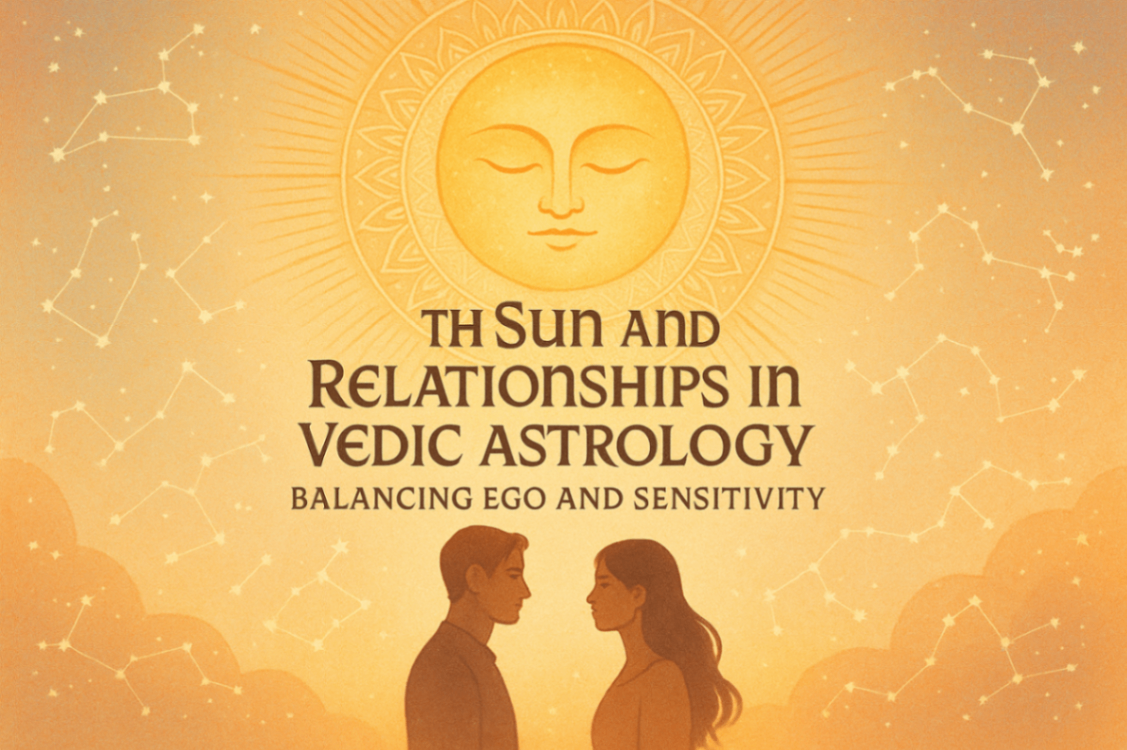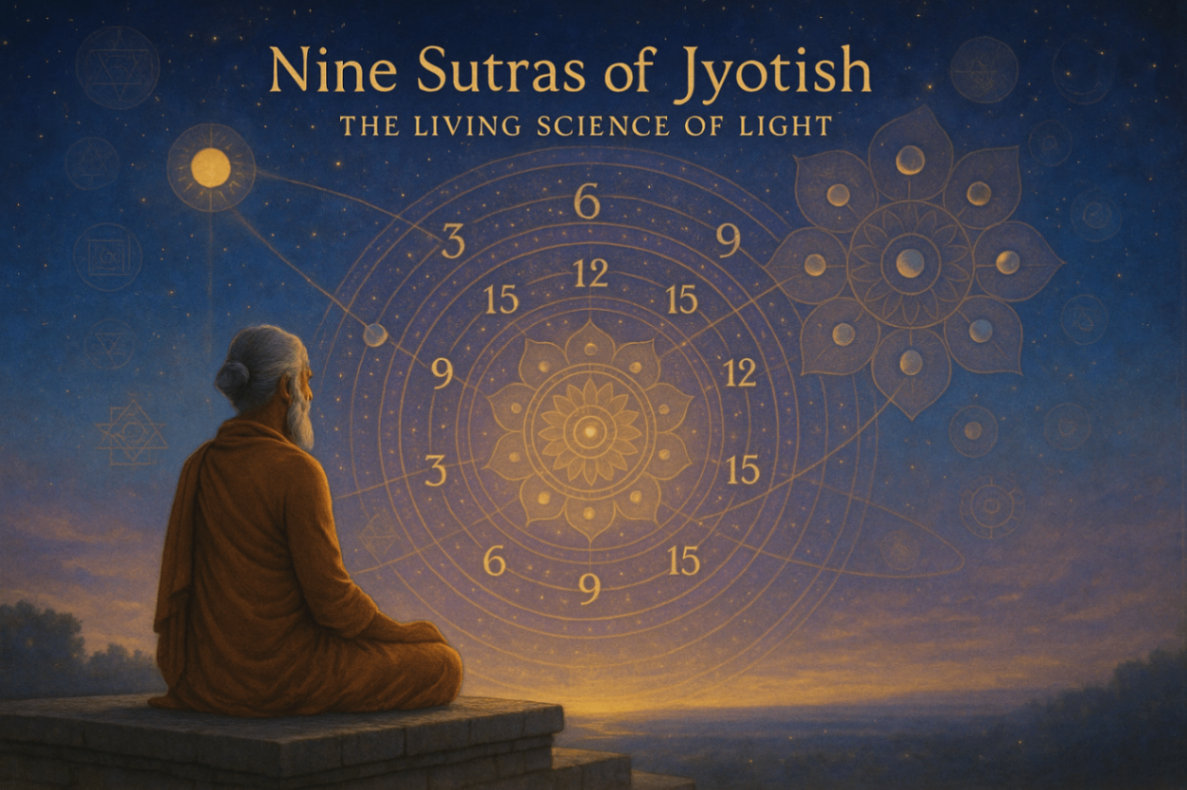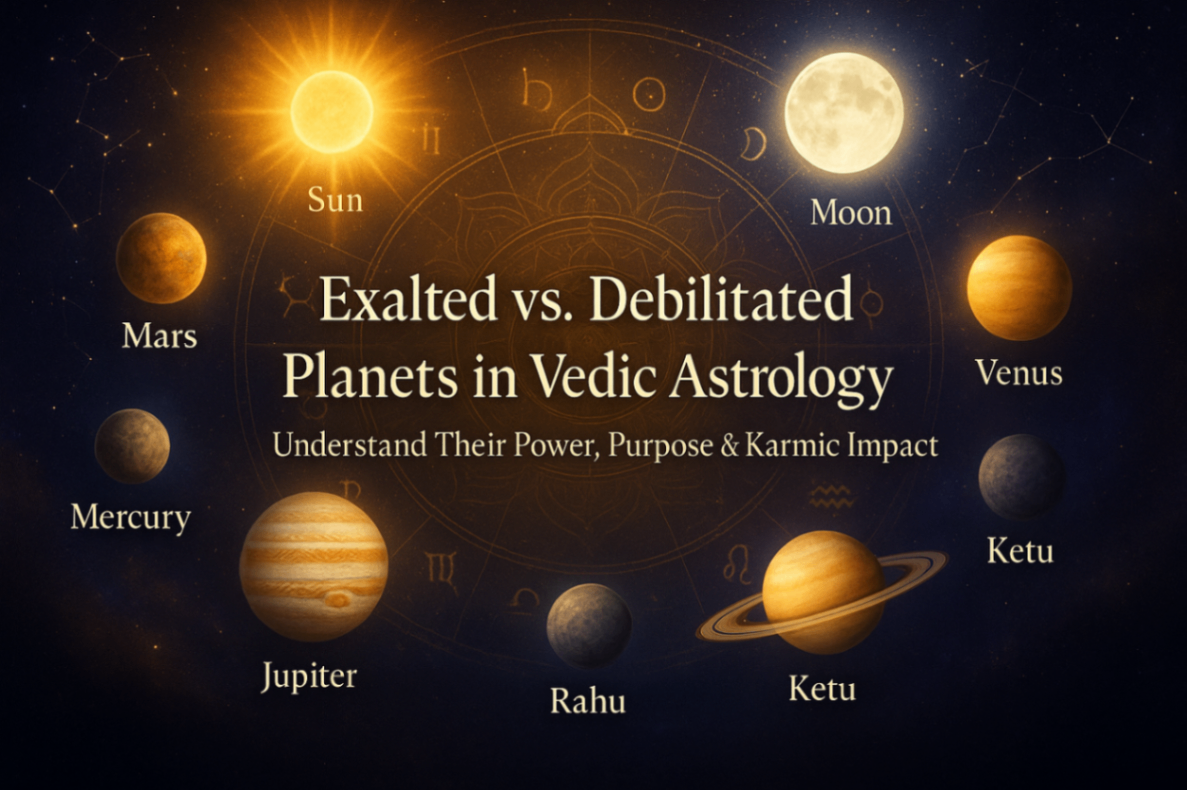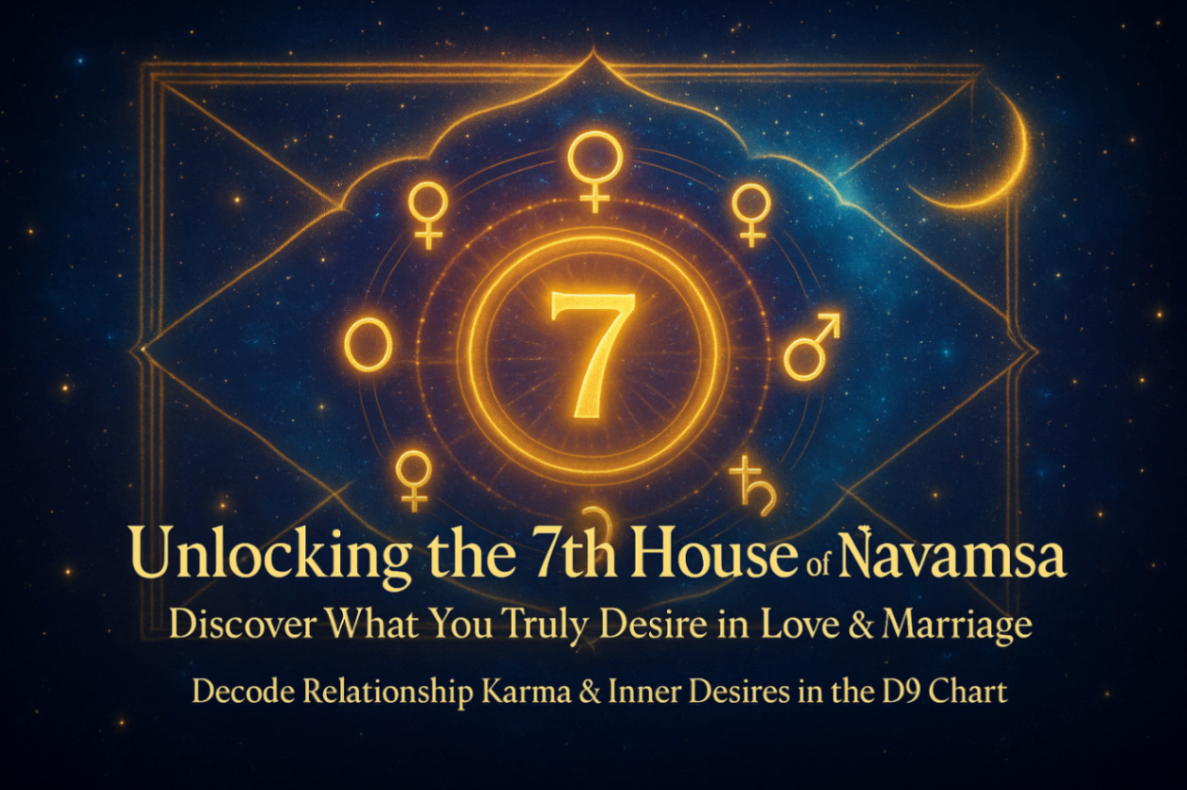Revised, Compiled and Re-edited | By Rocky Jamwal | August 2023
Introduction
The Upanishadic notion of karma serves as a foundational principle in Hindu philosophy, providing a framework for comprehending the relationship between actions and their consequences. The Upanishads, being an old text, offer profound insights pertaining to the fundamental basis of existence and the intricate interrelation between actions and their subsequent outcomes.
The Upanishads claim that karma encompasses the aggregate of an individual's physical and mental activities, and the consequent outcomes that shape their current and forthcoming experiences. The concept underscores the notion that each action elicits a commensurate reaction, so establishing a cyclical pattern of causality that governs an individual's existence.
The Bhagavad Gita provides a comprehensive elucidation of the principles of karma, reincarnation, and rebirth, with several verses, known as shlokas, expounding upon the concept of karma. The Bhagavad Gita demonstrates substantial influence from the Upanishads, despite its incorporation into the broader context of the Mahabharata.
The Gita is presented in a conversational structure involving Sri Krishna and Arjuna, taking place during the notable occurrence referred to as the dharmaudha, or morally justifiable conflict, in Kurukshetra. The Gita not only elucidates essential truths, but also posits that any manner of existence or mode of religious devotion undertaken by humans, provided it is motivated by a genuine aspiration for personal betterment, ought to be recognised and esteemed.
This article aims to elucidate the fundamental aspects of the Karma theory within the context of Vedic philosophy, Bhagwad Geeta, and the teachings of Bhagwan Shri Krishna and Swami Sivananda Saraswathi. Additionally, it will expound upon the astrological principles that underpin these concepts. It is anticipated that this will facilitate a more comprehensive comprehension of the underlying principles of karma in a meaningful manner.
Karma theory in Hinduism, Vedic philosophy, and Vedic astrology

कर्मण्येवाधिकारस्ते मा फलेषु कदाचन। मा कर्मफलहेतुर्भूर्मा ते सङ्गोऽस्त्वकर्मणि॥ २-४७
Karmanye vadhikaraste Ma Phaleshu Kadachana । Ma Karmaphalaheturbhurma Te Sangostvakarmani ।।
Meaning- Your right is to perform your work, but never to the results. Never be motivated by the results of your actions, nor should you be attached to not performing your prescribed duties.
( Bhagwat Geeta, chapter 2 )
Interpretation : In this discourse, Divine Sri Krishna advises individuals to priorities their focus on the execution of karma, rather than fixating on the outcomes or results of their acts. Furthermore, Sri Krishna emphasizes the importance of adopting a selfless mindset when engaging in one's duties and responsibilities within the realm of Karam Bhumi.
Karma is purportedly influenced by multiple elements, encompassing intention, motive, and the inherent moral nature of the conduct. The Upanishads emphasise the significance of engaging in virtuous behaviours with sincere motives, as these behaviours result in favourable consequences and facilitate spiritual development.
In addition, the Upanishads emphasise the philosophical notion of samsara, denoting the perpetual cycle of birth, mortality, and subsequent reincarnation. The prevailing belief posits that the karmic actions of an individual play a pivotal role in moulding their future existences, exerting influence over their circumstances and encounters. Positive activities are often believed to contribute to an elevated state of existence, whereas negative actions are associated with lower states of being or even the experience of misery.
The Upanishads also introduce the concept of moksha, which signifies emancipation from the cyclic nature of samsara. The attainment of moksha is often regarded as the paramount objective of human existence, representing the liberation from the entanglements of karma and the realisation of a profound connection with the divine. The attainment of emancipation is achieved through the process of self-realization and the recognition of the authentic essence of reality.
In essence, the Upanishadic doctrine of karma offers a complete theoretical structure for comprehending the intricate interplay between human actions and their subsequent outcomes. The text underscores the need of adhering to a virtuous lifestyle and underscores the possibilities for spiritual advancement and escape from the perpetual cycle of reincarnation. The acknowledgement of karma's influence motivates individuals to make deliberate decisions that are in accordance with moral principles, so facilitating their progression towards an elevated level of existence.
The concept of karma holds considerable significance in Vedic astrology. The prevailing belief posits that the activities undertaken in previous incarnations exert influence over an individual's current circumstances and forthcoming experiences. In my capacity as an astrologer, I engage in the examination of planetary positions within a birth chart in order to acquire a deeper understanding of an individual's karmic patterns.
Karma is a concept that pertains to the principle of causality, wherein each action is believed to produce corresponding outcomes. According to the principles of Vedic astrology, it is widely acknowledged that individuals bear the burden of prarabdha karma, denoting the segment of their previous life's deeds that have matured and are presently exerting an impact on their current existence. The manifestation of prarabdha karma might encompass both favourable and unfavourable situations, contingent upon the inherent characteristics of our previous acts.
The arrangement of celestial bodies in a natal chart yields significant insights about an individual's karmic inclinations. Every celestial body in our solar system symbolises distinct facets of human existence and possesses its own karmic implications. One illustrative instance involves the association of Saturn with karmic lessons and duties, juxtaposed with Jupiter's representation of spiritual growth and insight.
Through an examination of the celestial arrangements and their interplay, one can discern the domains of existence in which an individual may encounter the repercussions of their prior deeds. The potential influence of karmic forces in various aspects of life, including as relationships, careers, health, or wealth, can be inferred from the relative strength or weakness of specific celestial bodies, namely planets.
It is noteworthy to acknowledge that Vedic astrology does not perceive karma as a punitive measure, but rather as a catalyst for personal development and advancement. Gaining insight into one's karmic patterns can facilitate individuals in making deliberate decisions and implementing suitable measures to manage adversities and augment their spiritual progression.
In summary, the notion of karma in Vedic astrology underscores the intrinsic interdependence between our preceding, ongoing, and forthcoming circumstances. Through the examination of the planetary positions within a birth chart, I possess the ability to offer discerning observations of an individual's karmic inclinations. This enables me to provide guidance that facilitates educated decision-making, ultimately fostering personal development and a sense of contentment.
Origination of Karma
The concept of karma holds significant roots in Vedic, Eastern philosophy and spirituality. The concept that determines the consequences of our acts, both in the present life and in subsequent lifetimes, is considered to be of essential importance. The term "karma" originates from Sanskrit and carries the connotation of "action" or "deed," underscoring the significance of individual accountability for one's own acts. Karma can be conceptualized as a metaphysical principle governing the relationship between actions and their consequences in the cosmic realm. The proposition posits that any action undertaken, regardless of its moral quality, generates an energy that will ultimately manifest itself in a reciprocal manner. This implies that engaging in favourable behaviours will yield favourable results, but engaging in unfavourable behaviours would lead to adverse repercussions.
The concept of karma is intricately associated with the doctrine of reincarnation in Santana dharma . Based on this particular belief system, it is posited that upon the cessation of an individual's life, they undergo a process of reincarnation whereby they are subsequently born into new corporeal forms. The conditions and experiences encountered in their subsequent existence are purportedly shaped by the cumulative effects of their past actions, known as karma, across prior lifetimes. Put simply, the choices and behaviours we engage in during our present existence have a profound influence on the course of our subsequent existences.
Definition of Karma and Its Relation to Astrology: What is Karma?
The idea of karma is very important in Hinduism, particularly when it comes to comprehending the cycle of life and the effects of one's actions. According to the karma theory, which is a central tenet of both Vedic astrology and Vedic philosophy, every action we carry out has repercussions that can be felt in both the here and now and in the lifetimes we have yet to live. It is believed that karma, which comes from a Sanskrit term that means "action" or "deed," is a basic force that governs the cosmos. According to this point of view, each person is responsible for their own activities and must, in the end, deal with the results of those actions, regardless of whether those results are favourable or negative.
According to the concept of karma, our deeds leave behind an energetic imprint that is ultimately responsible for determining our fate. This concept is based on the concept of cause and effect. It highlights the concept that one's current circumstances are the product of acts taken in the past, while future experiences will be affected by decisions made in the present moment. This philosophical framework encourages individuals to take responsibility for their deeds and to make deliberate choices in order to direct the course of their own lives.
The idea of karma is developed further in Vedic philosophy, which asserts that it is not limited to the application to human beings but rather encompasses the application to all living entities. It gives the impression that every deed, thought, and purpose adds to the building up of karma. Each deed, whether it be one of compassion, selflessness, or harm, leaves an indelible mark on a person's karmic account.
The ideas of karma are utilised by Vedic astrology, which is strongly connected with both Hinduism and Vedic philosophy, in order to analyse and forecast the events and patterns that occur in the life of an individual. Astrologers are of the opinion that the locations and motions of celestial bodies at the moment of a person's birth have an impact on their karma as well as the following events of their lives.
Astrologers are able to provide insights into an individual's karmic tendencies and probable life paths by evaluating the influences that these planets have on our solar system.
Individuals are better able to see the interconnection of their activities and the effect those actions have on both their own lives and the world around them if they have a firm grasp on the karma principle, which is central to Hinduism, Vedic philosophy, and Vedic astrology. It fosters in one a sense of self-reflection, personal growth, and accountability for the decisions they make in their life. Individuals can attempt to build positive karma by accepting and embracing this philosophy, which can ultimately lead to a life that is more satisfying and peaceful.
It is imperative to acknowledge that karma should not be perceived solely as a mechanism of retribution and reward. Instead, it is a system that functions at a more profound level. Karma is widely regarded as a mechanism that facilitates individual development and spiritual advancement. Through the direct observation and understanding of the outcomes resulting from our activities, we are afforded the chance to acquire significant insights and cultivate enhanced levels of sagacity and empathy.
Moreover, the concept of karma transcends just individual deeds and encompasses the realm of thoughts and intentions as well. The generation of karmic energy can be attributed to the profound wants and motives that are within us. Consequently, the cultivation of a good mindset and the preservation of pure intentions are crucial for the generation of positive karma.
Although the notion of karma may appear intricate, its fundamental principle is straightforward: individuals bear accountability for their own actions and the resulting outcomes. It reminds us to be mindful of our choices and to strive for virtuous behaviour. Through this proactive approach, individuals have the ability to actively influence and mould their current and forthcoming conditions, so cultivating a life that is characterised by greater harmony and satisfaction.
The concept of karma holds substantial significance in Vedic astrology as it pertains to comprehending an individual's life experiences and prospective outcomes. Karma pertains to the principle of causality, wherein our past deeds exert an influence on our current circumstances and mould our forthcoming experiences. Vedic astrology encompasses various forms of karma, each holding distinct significance.
In accordance with the precepts of astrology, Karma can be broken down into a number of subcategories, each of which I will briefly describe below before delving into in further detail in the following installment of this series.
For the sake of gaining a knowledge of the karmas, which are inextricably interwoven with Vedic astrology, I will merely provide a high-level overview here:
Dridha Karma refers to a category of karma that encompasses the predestined and unalterable actions that individuals have accrued from their previous incarnations. The phenomenon in question is commonly denoted as "fate" or "destiny." The concept of "dridha karma" posits that certain aspects of an individual's existence, including their birth family, physical appearance, and key life events, are predetermined and unchangeable.
Adridha karma, alternatively referred to as "modifiable karma," pertains to the activities that are subject to modification or alteration within the context of our current lifetimes. In contrast to dridha karma, adridha karma affords individuals the capacity to exercise agency and alter the trajectory of their fate. The phenomenon is subject to the influence of our volitional agency and deliberate choices.
Kriyamana Karma, also known as current karma, pertains to the actions that are promptly executed in one's present existence. The aforementioned activities are a manifestation of our capacity for autonomous decision-making and are likely to exert influence on our forthcoming encounters. Kriyamana karma is regarded as the collective result of both constructive and destructive actions in which individuals partake over the course of their lives.
Sanchit Karma refers to the collective accumulation of all activities, encompassing both positive and negative deeds, that an individual has amassed throughout successive incarnations. The concept can be understood as a reservoir of karma that exerts impact on both our present existence and subsequent rebirths. The concept of Sanchit karma posits that actions and their consequences are thought to persist across multiple lifetimes until they are adequately addressed or harmonised.
Prarabdha karma pertains to the segment of sanchit karma that is deliberately selected for manifestation during the present incarnation. The term "karma" refers to a subset of accumulated actions that have reached a state of maturation and are poised to emerge in the current incarnation. Prarabdha karma is responsible for determining the significant life events, obstacles, and prospects that individuals meet throughout their current existence.
Agami Karma pertains to the forthcoming outcomes that arise from our present activities. The concept of karma pertains to the accumulation of actions and their subsequent consequences, which individuals generate in their current existence and will encounter in subsequent rebirths. The concept of agami karma is believed to be influenced by the decisions and acts individuals make in the current moment, ultimately affecting their destiny in future incarnations.
Gaining a comprehensive comprehension of the various forms of karma within the realm of Vedic astrology offers profound insights into the intricate nature of human existence and the intricate dynamics between determinism and personal agency. While certain elements of human existence may be predestined, individuals possess the agency to exercise deliberate decision-making and actively influence their own futures by their choices and behaviours.
The astrological concept of karma: Karma theory in Vedic Jyotish

In the terminology of astrology, Saturn and Mars are referred to as being in the top category for the karaka of physical karmas, deeds or actions of all life, where Saturn signifies all the actions of life we have passed numerous journeys of life. It involved the karmas of past, present, and future lives, and based on that, we experience Karma Bhoga and enjoy our lives. This refers to the karmas that we actually do or perform in the material world with our fully aware mind based on some of the action plans and logic participation that we have. All of these karmas are determined by one's physical actions and the reasons behind them.
Then there is a different level of karmas that always reside and keep growing in the hidden nook of our minds; these are the kind of karmas that are classified as being on the mental or sub-conscious level. Karmas that take place in our minds, or at a sub-conscious level, are known as mental karmas or sub-conscious level karmas. These are the karmas that we truly manipulate in some hidden part of our brains, or those that always reside in Mana (one of Sense). These karmas continue to bloom in the dreamlike world or in an imaginary world, and they are constantly busy crafting stories that have no connection with the practical or real world. These stories are founded on our unfinished aspirations, logics that we have left for the future, and those hidden means and motives that we have never been able to bring to fruition.
In this context, Mercury (representing the brain) and the Moon (representing the mind) are important manipulators for the construction of those imagined Mansik Karma or "Mana's ". If we perceive something fictitious in Deep prospects, it's likely due to karmic debts and an unbalanced flow of energy through the Vishudhi chakra we manifest those mansik karma's. Purification is the purpose of the Visudhi chakra role, and it is intended to take place not only on the level of the body, but also on the levels of the psyche and the mind. All of the terrible events that we have pushed to the back of our minds throughout our lives will remain there until we confront them head on and find a way to make peace with them using more mature insight. In the event that this Chakra has not been developed to its full potential or is in an imbalanced state, the native may struggle with a variety of issues pertaining to the mind.
When the Vishuddha Chakra becomes blocked, people experience emotions of anxiety, a lack of freedom, and confinement, as well as general issues with their thyroid and throat.
To Speak Frankly, in the language of Astrology, the Moon and Mercury are the only ones to blame for the mana-based good and evil karmas that we make in our hidden corner. The Moon is associated with mana-based acts that are impacted by the wants and thought processes that are buried deep within us. When any of us get afflicted via the nodes (Rahu/Ketu, Mars, and Saturn), we produce those evil karmas in the physical world.
Those are the thoughts that never leave my head. A spark is set off in our day-to-day lives as a result of our five senses' speculation for the manifestation of hidden desires. These hidden desires take the form of manipulative acts, and the spark is set off by our five senses. These are the cravings that are constantly being reborn in our minds as a result of a small number of thoughts, and we either make an effort to satisfy them or we become dissatisfied by them.
Those karmas that are somewhere hidden in the mind and are working hard to take a form on a physical level or in the physical world for the manifestation of desires based on some action plan are referred to as Sub-conscious-based karmas. This term refers to all those future thoughts that keep taking birth in our Sub-conscious plane.
"Mana is the main culprit as well as a boon too and is classified in the top level overall 5 senses for accountability in evil and Good Karmas," states the Karama Theory of the Bhagwat Geeta.
Mercury, which turns those ideas into some logic and yields some planning and acts, is the subpart of Mana-based karma. Mercury is responsible for intelligent action-oriented karma based on some logic, computations, and mathematical equations that are fired from the Vishudhi Chakra. Mana exerts a significant amount of impact over the functioning of the brain, which in turn controls all of these senses.
If Mercury is afflicted in a chart, it will give birth to an evil logical approach in actions; however, if it is beneficially placed in any Dharma Kona (1, 5, and 9th houses) or gets aspects from the Sun and Jupiter, it will uplift the dharma and those actions in a fruitful manner for the cause of society.
In other words, if Mercury is afflicted in a chart, it will give birth to an evil logical approach in actions. Mercury, or the brain, will eventually rule over all of those five senses, and it will serve as an indicator of the greater intelligence of Gyaani, as described in the Bhagavad Gita. This will take place in the distant future. A person will live their life in accordance with Gyan Yoga.
Actions or outcomes that are determined by one's wants are the forms that karma takes when it is carried out on the conscious and the sub-conscious levels of existence. The aggregated effects, also known as the "fruits" of acts, are referred to as Karma-Phala (Sanskrit for "fruit of Karma").
Astrological Interpretation of Karma and Astrology

Karma, Navamsa and Relationships
The Navamsa Chart, also known as the Dharm-Amsa (D9), is seen as the fructification of karmas (both subconscious and conscious karmas) in the context of the Astrological Language. The Dharma-amsa provides hints and information regarding the strength of karma, which can be used to verify the fruition of any Raaj or Raja yoga practise.
This is the primary reason why we regard the fructification of Marriage from D9 as a dharma related with marriage bonding; the dharma of Marriage is having legal children, fulfilling our religious and societal duties, and elevating it mutually, all of which are important to grow for both the individual and his or her kula (family). Dharma imparts insight and illuminates the way to conduct oneself in the most morally sound manner.
The affliction of any planet in the D9 chart reveals in what domain you are practising dharma or what you are not following, which is not in accordance with dharma or the righteous principles of the Almighty. Additionally, the affliction may indicate what you are not following, which is not in accordance with dharma.
Kids are the products of marriage, and if Venus is afflicted in the D9 chart for both males and females, then signifies that something illegitimate is happening in a relationship or in the sphere of Venus, i.e., Marriage or w.r.t. women. Kids are the fruits of marriage. Either the native is violating the rights of women in some way, or he or she is engaging in sexual behaviour that is not permitted outside of the context of marriage. Both of these scenarios are unethical.
Someone I know has Venus in the second house of the D9 chart, which is aspected by Mars and Rahu. This person used to have illicit connections with women in order to gratify their senses, which, in the end, would undoubtedly destroy the properties that Venus possesses in the D1 chart.
Venus (in a retrograde state; having unwanted desires to fall in love) rules the 5th house in the D1 chart of a native, despite the fact that it is located in the 12th house. I was fairly certain that it would lead to a delay in his happiness via marriage (happiness through marriage leads to kids; the 5th house is falling into the 11th house from the 7th house; this shows the fruits or product of marriage or gain via marriage). In this particular scenario, the native was unable to complete his studies for his master's degree, his spouse experienced miscarriage of their first child before it was born, and both couples do not have a particularly healthy relationship in marriage.
Therefore, the affliction of any planet in the D9 chart will offer you a hint as to how Adharma is happening around you, which can result in a crisis in marriage, a poor relationship with Women, a problem with your wife, and a reduction in Results in the house in which Venus is having lordship in D1.
According to the spiritual truth or reality, marriage is the result of the Sanchita and Prarabdha Karmas that each of us has completed in previous incarnations. Based on those karmas, either we used to enjoy those ties or we realised or suffered because of those relations as a result of actions or bad deeds from the past. Marriage will be extremely successful for you if you have a history of excellent karma in previous lives; this outcome may be verified using the D9 chart as well.
Venus (in male charts) and Jupiter and Mars (in female charts) will be unaffected by any nodal affliction when viewed through the lens of the d9 chart. In your present birth chart, the 6th House and 6th Lord in D1 will generally try to hinder marriage relationship maturity, and any afflicted nodes will always try to upset the marriage in your current life if you have done anything evil to any men or women in past lives. If you have done anything harmful to men or women in past lives, the 6th House and 6th Lord in D1 will try to obstruct marriage relationship maturity.
Whenever it makes any relationship or influences the 7th house, 7th Lord, UL (Uppada Lagana) or A7 (Darapada) in the d1 chart and other marriage-supporting houses, natives either will face delays in the marriages or, if somehow natives fall in relation to love or close bonding, the relationship will be like a path of cactus or the level of suffering in that relationship will be intense or severe.
If AK is deeply afflicted by nodes, is in some way connected with Suffering houses, or has some relationship with either Venus, UL, or A7 Arudha, then either relationships and marriage will be difficult to handle and can fail very quickly, or the level of suffering will be very intense and unbearable for that soul. This is something that I have seen in many of the cases where I have looked into this, and it has been my experience.
The only goal is to learn the lesson of one's soul from past karmas by experiencing the same kinds of sufferings that one has caused for other people. Karma's job is to ensure that the soul is constantly aware of its actions and to filter out those that prevent it from experiencing greater progress in the present incarnation. Because of those pains, there is a possibility that some souls will perish, while other souls will use them to forge a fresh start along the spiritual road.
This can also be verified by consulting the D9 chart, specifically the strength of Ak (Atmakarka). If Ak is strongly conjugated with nodes or malefic planets, or if it is debilitated situated in trik Bhavas from Lagana of D9, it is a definite indication that the level of soul suffering will be extreme, and it also suggests that one will have to suffer greatly in this incarnation as a consequence of past sins. As Ak is weakly situated and weakened, there is also the possibility that the native could either fall back or rise above on a spiritual level. This is due to the fact that Atmakarka is main planet that rules your whole in definitive actions of life.
Debilitation of Ak is always a situation of the fallen soul due to one's own actions in this life; while one may rise materially, it may be difficult for him to lift his soul from Tamasik Parvarti, or Tamas would be part of his life. This could be a difficult situation for him in the later part of life, not initially in the beginning, but when one's soul consciousness grows or gets mature and when the progression of Saturn, Jupiter, and Rahu/Ketu's 2nd cycle begins in the native, he will realise his past life actions.
The native has a very obvious decision to make regarding what he wants to achieve as a result of that suffering: either rise above it or fall further into it. This obviously shows that one is required to pay back its karma in any way, either in this incarnation or in the next birth, either in this birth or in the next birth, if somehow the native could take it forward to the next birth with the blessings and assistance of the seers, saints, gurus, and divine spirits. obviously, this says that one must pay back its karma in some manner.
For More Reading on Karma Theory and Past birth :
https://vedicsiddhanta.in/2017/05/unlocking-mystery-of-the-past-life-astrology-karma-and-past-life-regression-part-1.html
When we investigate further, we find that Sanchit Karama is primarily used to classify good karmas on a broad level. This is despite the fact that Sanchit Karama is also used to classify bad karmas; however, the level of outcome is extremely different. When dashas and slow-moving transits (such as Saturn, Jupiter, and the nodes) are in support of the chart, the result of Sanchit karma can manifest at any moment during your life.
It's possible that it can happen either before or after marriage, depending on the circumstances. It is wholly dependent on the transits of the karmic planets (Saturn, the Nodes, and Jupiter) on the houses or lords that have connections to actions that have been carried out in the past. Therefore, keep a close eye on your karmas with keen insight and an open mind.
When they are coupled with the Moola dasha, which reveals the outcomes of past actions, the Good and Bad vimsotri Dashas in the Natal Chart keep reminding you about your combined Sanchit (the sum total of all good and bad karmas) and Prarabdha Karmas (the pain you have given to others).
The result of moola dasha provides a clear picture of the degree of misery we are experiencing in this life, and the result of moola dasha's combined readings provides a clear picture of the reasons we are experiencing this level of suffering in this life. Each dasha complements the other in its function. The first presents the reasons for pain, while the others demonstrate that throughout that time period, we could experience suffering as a consequence of actions or behaviours we committed in the past.
In the Next parts of this karma theory, we will try to explain all these principals in the native individual chart with examples of life events so that the user can better understand the concept of karma that one applies in the own birth chart for personal development and growth rather than taking it as a burden, guilt, or feeling of lowliness.
Teachings of the Swami Sivananda Saraswathi on the Actions, Karma and Past life

The following sayings of Swami Sivananda Saraswati Ji speak unmistakably about the consequences of one's acts or deeds in the past, as was covered in the astrological interpretations presented before in this article:
"What you do has to have repercussions and effects on our surrounds. Put another way, "As you sow, so shall you reap." "Life is an infinite chain of results of deeds (Karma) in the past that work on the premise of "the law of Cause and Effect." This is also true in physics and actual reality." The process by which the consequences of karma are meted out is referred to as the "Law of Karma." This law is governed by Lord Saturn, whose role it is to either punish or impart and teach the valuable lessons of life.
The Law of Karama can be summed up in a few words: "What you will do and what you will get at any moment at any time."
"In our Sanatana dharma, Karma is considered to be a spiritually originated law that governs all of life's functioning, and this is according to Swami Sivananda Saraswati's teachings," Even though an individual is thought to be the only person who is responsible for his karmas and the enjoyment of their "fruits," according to the Law of Karma, the supreme being (The Divine power, Lord Jupiter, represents the divine blessings from the god who showers blessings upon us when we deserve them as our Sanchit karmas allow) plays a significant role as the dispenser of the "fruits" of karma.
(For further information, Refer Yogi Swami Sivananda Saraswati's books )
The "Transit of Jupiter and Saturn Transits in D1 Chart" is the ideal place to start when attempting to gain an astrological understanding of the law of karma and the fruits or results that are associated to it.
These are examples of what are known as "Non-Fixed Karma" (Adridha Karmas), and they can manifest at any time, regardless of whether or not both transits are in your favour. The transit of Jupiter bestows chances, and Saturn reveals the times when karma must be satisfied in order to move on. Both of these transits operate together to convey the outcomes and fruits of karmas and actions associated to past deeds. They do this by working in mutual interactions.
I have faith that this most recent installment of this series has provided you with useful information regarding the karma theory of Vedic philosophy, which is something that we can also use to Vedic astrology provided that we take certain precautions and have a thorough understanding of it.
Concluding remarks:
Astrology is just a tool that helps us understand the karmic impact on us when it is at a high level. In the spiritual world, God is somehow directly involved in this process, and astrology is just a tool that helps us grasp that influence. Although there is no way to avoid karmas in any way, they can be neutralised or minimised to some extent thanks to Bhakti/Tapa/Nama Jaap and immense devotion towards the almighty. However, the period of karmic suffering that one has to go through cannot be avoided. In general, the natural laws of causation are sufficient to explain the effects of karma.
Stay connected and wait for the upcoming parts of this series.
Best wishes and Regards,
Rocky Jamwal | Vedic Siddhanta
This article is originally written in vedicsiddhanta.in , Click on the link to learn more such articles.
Source, Reference, and Links :
https://www.sivanandaonline.org/?format=html
https://www.gitasupersite.iitk.ac.in
https://vedabase.io/en/library/bg/5/
https://sacred-texts.com/hin/sbe15/sbe15017.htm
To be continued...






































